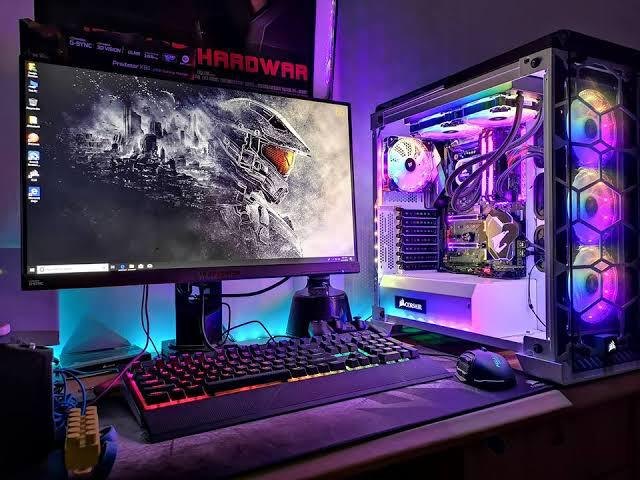The gaming industry has come a long way since its inception, and gaming consoles have played a pivotal role in shaping the landscape. From the simple beginnings of Pong to the cutting-edge technology of the PlayStation 5, the evolution of gaming consoles has been a remarkable journey. In this 1500-word article, we will delve into the history of gaming consoles, highlighting their significant milestones and the impact they have had on the world of gaming.
The Birth of Gaming Consoles
Gaming consoles, as we know them today, had humble beginnings. The very first home gaming console was the Magnavox Odyssey, released in 1972. It featured games like Pong, a virtual tennis game, and was a basic black-and-white system that connected to the TV. This marked the birth of home video gaming, and it was just the beginning of an incredible journey.
The Golden Age of Arcade Games
Before gaming consoles became a household staple, the arcade scene took center stage. Games like Space Invaders and Pac-Man were immensely popular, and people would flock to arcades to enjoy these interactive experiences. These early games laid the foundation for what would eventually become home console gaming.
The Rise of Nintendo and the NES
In 1985, Nintendo released the Nintendo Entertainment System (NES), which marked a significant turning point in the evolution of gaming consoles. The NES introduced iconic games like Super Mario Bros. and The Legend of Zelda. These games not only captured the hearts of gamers but also set a standard for platformers and adventure games. The NES was a massive success and is often credited with revitalizing the gaming industry after the video game crash of 1983.
The Sega Genesis and the Console Wars
The 1990s brought about fierce competition in the form of the “console wars.” Sega entered the scene with the Sega Genesis, taking on Nintendo’s dominance. This rivalry led to some of the most iconic moments in gaming history, with Sonic the Hedgehog becoming Sega’s mascot and Super Nintendo releasing classics like The Legend of Zelda: A Link to the Past and Super Metroid. The battle between Sega and Nintendo drove innovation and introduced gamers to cutting-edge graphics and gameplay.
The 3D Revolution with Sony’s PlayStation
In 1994, Sony launched the PlayStation, marking another significant milestone in the evolution of gaming consoles. The PlayStation was a 32-bit console that introduced 3D graphics and CD-ROM technology, revolutionizing the gaming experience. Games like Final Fantasy VII and Metal Gear Solid showcased the potential of 3D worlds, captivating players like never before. Sony’s entrance into the gaming industry would establish it as a dominant player.
The Xbox Era and Online Gaming
Microsoft entered the gaming console arena with the Xbox in 2001, emphasizing online gaming with Xbox Live. This brought a new dimension to multiplayer gaming and laid the foundation for the future of online gaming communities. Titles like Halo and Gears of War became synonymous with the Xbox brand. Microsoft’s entry diversified the gaming landscape and introduced the concept of exclusive titles to attract gamers to specific platforms.
The Mobile Gaming Revolution
The early 2000s also saw the emergence of mobile gaming, with devices like the Game Boy and later, smartphones. Games like Pokémon and Angry Birds became global phenomena, making gaming more accessible and portable than ever. This shift in gaming platforms allowed people to enjoy games on the go, further expanding the gaming industry’s reach.

The Present: PlayStation 5 and Xbox Series X
Fast forward to the present, and we have the PlayStation 5 and Xbox Series X, two powerful consoles that offer 4K gaming, ray tracing, and lightning-fast loading times. The gaming industry has become a multi-billion-dollar behemoth, with blockbuster titles, esports competitions, and streaming services like Twitch and YouTube Gaming driving its growth.
The Future of Gaming Consoles
As we look to the future, the gaming industry shows no signs of slowing down. Cloud gaming, virtual reality, and augmented reality are poised to revolutionize the way we play. Services like Google Stadia and Project xCloud are changing how gamers access and enjoy their favorite titles. The next generation of gaming consoles will likely integrate these technologies to create even more immersive and interactive experiences.
Conclusion
The evolution of gaming consoles has been a thrilling journey, taking us from the simplicity of Pong to the high-tech world of the PlayStation 5. Each era brought its own unique innovations, iconic games, and cultural impacts. Gaming has transcended entertainment and become a social and cultural phenomenon, connecting people from all over the world. Visit Internet Ardahan if you need more information or have any questions about gaming.



